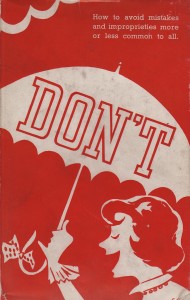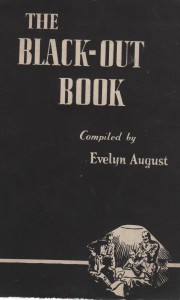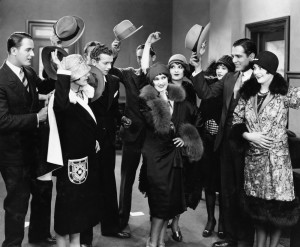Most books of etiquette published seventy or more years ago. have comic value .If they were written by foreigners anxious to ‘ educate ‘ their compatriots in the ways of the English there is a strong likelihood that they will be occasionally hilarious. Such a book is English Etiquette, which was published at St Christopher’s, Letchworth, a radical and culturally significant independent school that had established a printing press by the late 1920s. Its author, a certain Dr R. U. Hingorani, an Indian who was active from 1928 to 1930, according to the records, and appears to have been a Harley Street practitioner around that time. The booklet’s aim was to familiarise Indian immigrants with the customs of the English.
Here is the good doctor’s advice on :
Personal habits
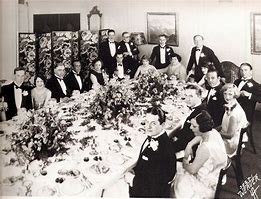
It is a social crime to lick your fingers when turning over the pages of a book. An educated Englishman values his books as part of his personal property—he looks after them and keeps them clean. If he lends them to a friend it is a personal favour and he expects that friend to return the books in the same condition as they were lent. Licking the fingers while turning over the pages, besides being considered a dirty habit, will, if persisted in, soon spoil the appearance of a book, giving it a ‘dog-eared’ look and detract from its value…
You should never overlook another person’s newspaper or book…It is quite in order to ask for a loan of a newspaper or book but you should wait until he owner has completely finished reading and then politely make your wish known…
In England, as in other countries, an attractive personal appearance is a great asset in any walk of life but to attend to one’s toilet in public is a very bad social error. For instance, finger nails must always be kept scrupulously clean—this is a very important point as dirty finger nails are taken as evidence of a person’s bad upbringing—but they must never be cleaned in public. Ears and nose should always be attended to in private and you must never play about with your fingers when talking to another person…
Another bad error is to talk to a lady with your hands in your pockets. This shows that you are not so accustomed to talk with well-bred ladies and that your primary education has been defective…
European and Far Eastern people lend emphasis to their speech when talking with friends and acquaintances by gesticulating with their hands. This is quite incorrect in English eyes. A person who continually uses his hands in conversation is considered to have had an inadequate education…Pointing with the hands should always be avoided as this is considered a very rude habit…
Continue reading
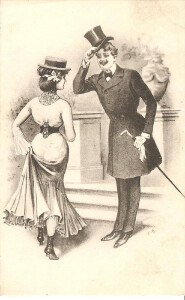 If Everybody’s Best Friend ( 1939) is to be believed, people were still debating the propriety of men giving up seats to women, whether or not it was necessary to doff a hat to a lady or where a man should walk on a pavement when accompanying a lady, as they had done for centuries before and perhaps still do. On the question of who should pay on a night out, to an earlier generation brought up before the advent of Women’s Liberation, there is no question that a man should pay for everything. Notice that it is tacitly assumed that once the man and woman are married, it is certainly the husband who must pay for a meal and for seats in a theatre or cinema, even though the wife may have an income from her job. But have things changed that much ?
If Everybody’s Best Friend ( 1939) is to be believed, people were still debating the propriety of men giving up seats to women, whether or not it was necessary to doff a hat to a lady or where a man should walk on a pavement when accompanying a lady, as they had done for centuries before and perhaps still do. On the question of who should pay on a night out, to an earlier generation brought up before the advent of Women’s Liberation, there is no question that a man should pay for everything. Notice that it is tacitly assumed that once the man and woman are married, it is certainly the husband who must pay for a meal and for seats in a theatre or cinema, even though the wife may have an income from her job. But have things changed that much ?